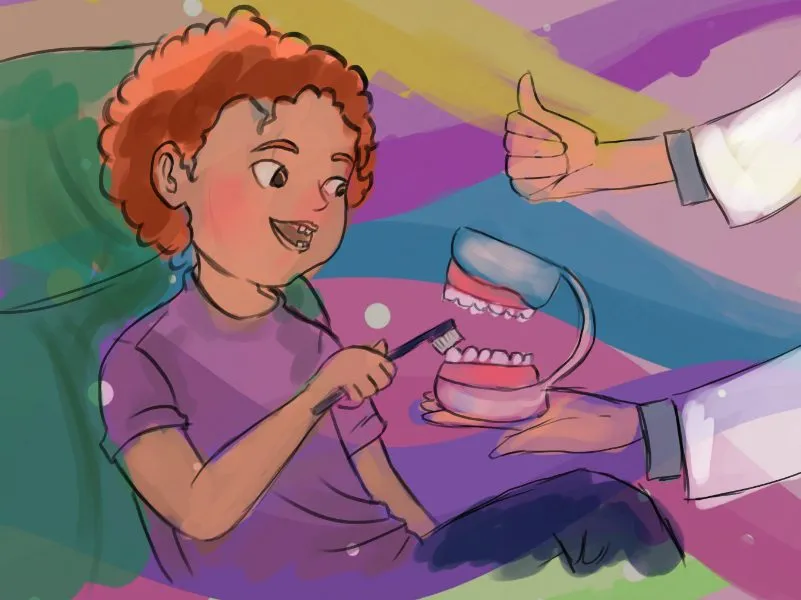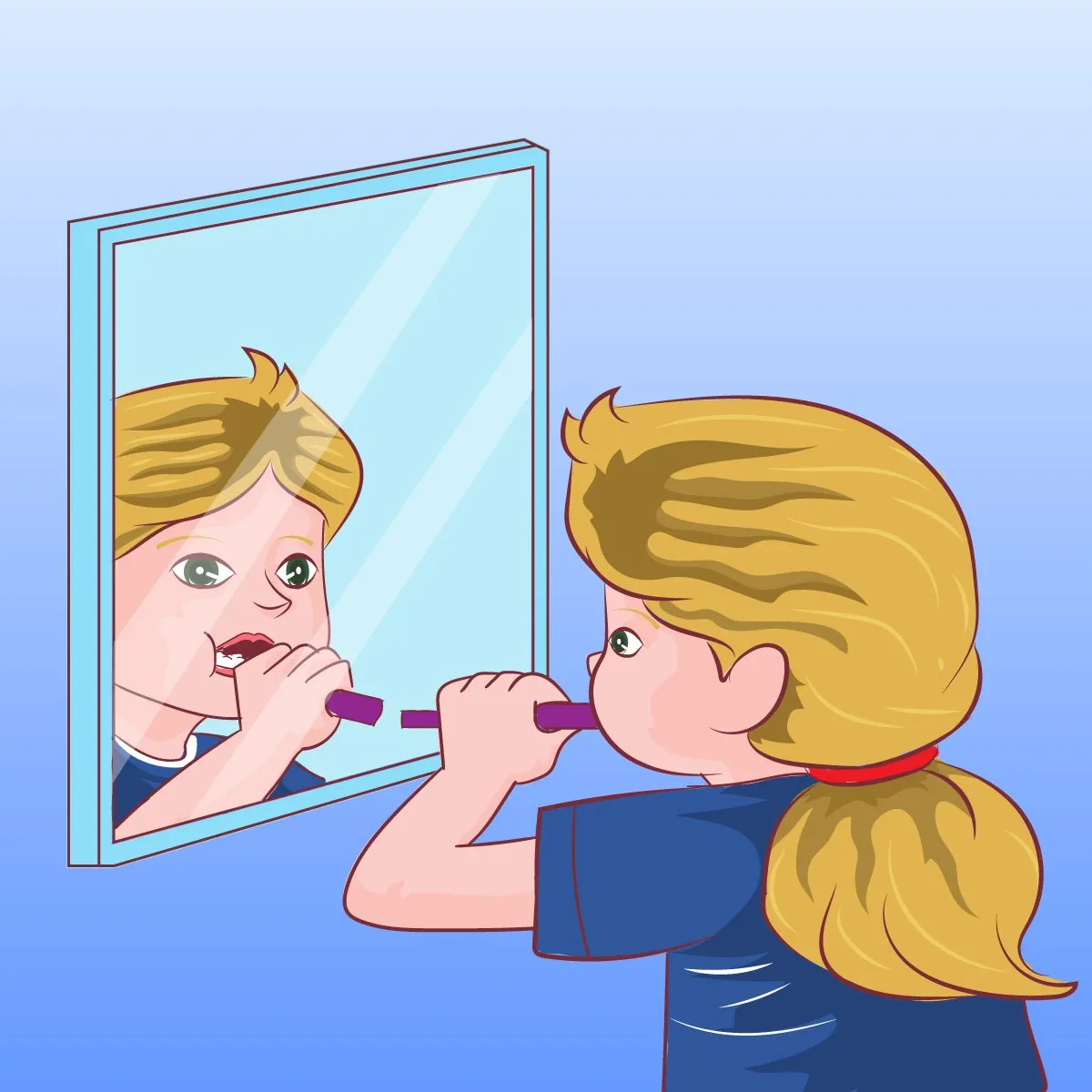The thought of your child contracting a disease probably scares you as a parent. This is because the sound health of your children is the key to your happiness. When it comes to the health of kids, the slightest sickness can turn serious. This is why you must ensure that your child remains healthy at all times.
Oral health problems are growing day by day. According to the World Health Organization (WHO), around 3.5 billion people get affected by various dental diseases. However, it has been acknowledged that about 530 million children suffer from dental health issues.

How to make your kid’s teeth healthier?
People usually neglect the importance of dental and oral health. A minor dental problem can be tackled easily if treated in a timely manner. However, if the dental problem isn’t diagnosed and treated promptly, it can have catastrophic consequences in the long term.
If you’ve ever had dental issues, you are aware of the suffering that comes from oral health problems. Oral health problems include unbearable pain in the mouth and jaw. If an adult can’t bear the pain of a toothache, how can a child?
Oral health care is just as essential as physical health care. Everyone wants to make their kid’s teeth and gums more powerful and healthy. For this reason, we’ve compiled 5 strategies to give you a leg up and help you manage your child’s oral health.
Brushing and flossing twice a day
Ensure your children make it a habit to brush their teeth twice a day (once after waking up in the morning and then at night, before going to bed). You must also guide them to flossing their teeth (at least once a day) if they are the age of two or older.
The brushing and flossing of your child’s teeth helps prevent numerous oral diseases such as chronic gingivitis, tooth decay, periodontal diseases, oral cancer, and many more.

Maintain an appropriate diet
Food plays a significant role in the emergence of oral health problems. The majority of oral diseases largely depend on what type of food your child eats. Here are a few examples of foods that can be good or bad for your child’s oral health:
Foods good for dental health:
These foods include apples, eggs, milk, yogurt, cheese, green vegetables, celery, carrots, nuts, and seeds (for example, sunflower seeds).
Foods bad for dental health:
These foods include sweet drinks (consisting of high sugar content), sugary chew candies, citrus fruits and their juices, chips, bread, and pasta.
Maintain regular dental checkups
Dental checkups are a significant step that are often ignored by many people. Regular dental visits for your children are essential because a dentist can diagnose any gum or oral disease earlier than you may notice the signs.
Your Houston dentist can identify plaque that you have missed while brushing.
Use fluoride toothpaste and mouthwash
Using a fluoride toothpaste will strengthen your child’s teeth. Fluoride based toothpaste prevents teeth from tooth decay or cavities in your child’s mouth. Having your children rinse their mouths with a fluoride mouthwash will help prevent their oral health from deteriorating.
Doing this will provide deep cleansing to the child’s mouth that decreases the risk of dental diseases.
Teach your children good habits
This tip is not just in the case of oral health. It is necessary to teach your kids good habits in all aspects of life. Teaching dental health-friendly practices to your children will ultimately benefit them but also save you the time and money that comes from additional dentist’s visits and treatments.
Educate your children on proper dental health so they can enjoy a beautiful smile and a healthy bite throughout their lives.
What are the most common oral health problems in children
Here are three of the most common gum diseases found in children:
Cavities and Tooth decay:
Tooth decay, or cavities, is one of the most familiar and common dental diseases found in children. Cavities are generally a very small hole or erosion in your tooth that may or may not cause extreme pain. Because cavities do not always cause pain, it is extremely important to maintain frequent dental checkups for cleanings and examinations.
Signs of cavities
Here are some signs that show when a cavity has affected your children’s tooth:
- dark spots on the cavity-affected tooth.
- tooth sensitivity whenever you drink hot or cold liquids.
- swelling around the mouth area, which eventually leads to pain.
Treatment of cavities
Dentists will usually recommend for your child to go for dental fillings treatment. They may also recommend for your child’s teeth to be extracted in more severe cases.
When conducting a dental filling treatment, the dentist will fill the tooth with the cavity with dental fillings. The most commonly used dental fillings are tooth colored materials, but I’m sure you have seen gold or silver filling materials as well.
If the dentist determines extraction is the best treatment, the cavity affected tooth will be removed. This is a last resort option, as it is best to keep the natural teeth for the integrity of the entire mouth.
Orthodontic problems
Orthodontic problems are widely found in children nowadays. Abnormal tooth eruption, crooked teeth, misaligned teeth, and protrusion are the most famous orthodontic diseases.
Signs of orthodontic problems
The most familiar changes orthodontic patients face are enlisted below:
- An abnormal loss of primary teeth (often called baby teeth)
- Underbite, overbite, crossbite, or openbite
- The midlines of the teeth not matching up
- Difficulties in biting and chewing
- Your upper and lower (or one of them) jaws being crooked
Orthodontic treatment
The procedure for treating orthodontic problems is known as orthodontic treatment. Dentists recommend taking your child for an orthodontic exam in order to diagnose any possible problems.
Taking your child for orthodontic treatment at an early age (six to seven) will make treatments much easier and save them from long term oral disorders. Doing this will reduce the risk of getting teeth impacted at the adult stage and will also protect your children from cavities.
Chronic gingivitis
Chronic gingivitis can be completely painless oral disease in which an intense inflammation starts in the teeth. In its more severe stages, it will become a gum disease that will cause the teeth to become unable to eat, chew, or bite with. This is due to the intensive pains that come with severe chronic gingivitis.
Signs of chronic gingivitis
You could have chronic gingivitis if you have any of the following symptoms:
- bleeding gums
- recessed teeth (the state in which the tooth’s roots get exposed)
- constant bad breath
Treatment of chronic gingivitis
The best treatment and prevention for gum diseases is proper oral hygiene care and regular dental cleanings and examinations. Brushing and flossing regularly not only prevent you from chronic gingivitis, but this will save you from lots of other gum diseases as well.
With more severe cases, treatment for chronic gingivitis patients is a professional dental care procedure. The main objective of this dental treatment is the removal of plaque and tartar from teeth, known as scaling. The treatment involves in-depth cleaning of teeth and removal of all the plaque. Depending on the severity, multiple treatments may be necessary. Once again, this is why we stress the importance of regular checkups and basic dental hygiene.
In Conclusion
If you see any of the above-mentioned dental diseases in your child, contact us now for our trustworthy services. Our prompt and reliable services will help your children smile at their best. We want the same thing as any parent – for your children to be happy and healthy!
